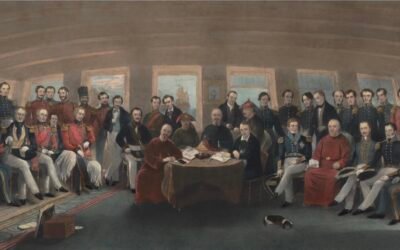On the United Nations International Day for the Right to the Truth Concerning Gross Human Rights Violations and the Dignity of the Victims, the suffering of Tai Ji Men was compared to other cases where religious liberty was violated.
by Alessandro Amicarelli

On March 24, 2025, CESNUR and Human Rights Without Frontiers co-organized one of their periodic webinars on the Tai Ji Men case. March 24 is the United Nations International Day for the Right to the Truth Concerning Gross Human Rights Violations and the Dignity of the Victims. The webinar had as its theme “Spreading the Truth About the Tai Ji Men Case.”
Massimo Introvigne, director of CESNUR and editor-in-chief of “Bitter Winter,” introduced the webinar. He noted that for Christians the question of truth is connected with the tragic figure of Pontius Pilate, the Roman governor of Judaea at the time of Jesus’ death. Faced with the choice between liberating or executing Jesus, he refused to choose and publicly washed his hands in front of the crowd. With this, he meant that he assumed no responsibility for the decision and would let the crowd decide. Pilate also implied that what is the truth can normally not be ascertained by humans. The expression “Pilate-like” and “washing one’s hands of” come from this incident. Both expressions, Introvigne said, are eminently applicable to the attitude of Taiwanese politicians and bureaucrats who, confronted with the truth about the Tai Ji Men case, washed their hands of justice in a Pilate-like matter and refused to solve it. However, he concluded, hope is never lost. Apocryphal scriptures claimed that Pilate converted after the death of Jesus and saw the truth. His heart was touched and he was even willing to die for the truth. Introvigne expressed the hope that the heart of “somebody” in Taiwan may also be touched, and justice rendered to Tai Ji Men.
Introvigne then introduced a video by the International Academy for Multicultural Cooperation, explaining the origins and aims of the United Nations International Day for the Right to the Truth Concerning Gross Human Rights Violations and the Dignity of the Victims.
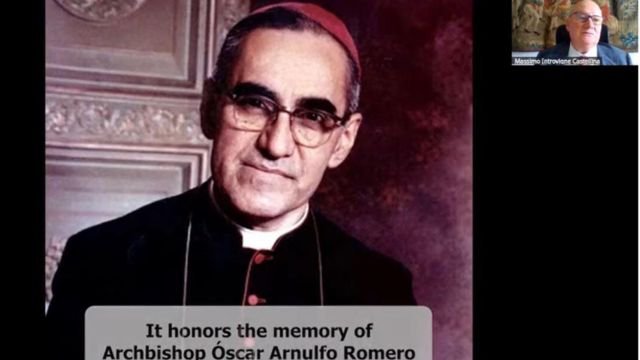
The same theme was discussed by the first speaker of the first session, Márk Nemes, a lecturer at The Research Institute on Art, Theory, and the Methodology at the Hungarian Academy of Arts in Budapest. Nemes reflected on the testimony and death of Archbishop Óscar Arnulfo Romero of El Salvador, who was killed for his brave activism on behalf of human rights. When it comes to religion and spirituality, Nemes said, human rights are still violated, particularly of spiritual minorities discriminated as “cults.” He mentioned three cases: the Jehovah’s Witnesses, persecuted in several countries; the Unification Church (now called the Family Federation for World Peace and Unification), threatened with dissolution in Japan; and Tai Ji Men, whose basic human rights have been repeatedly violated in Taiwan. On the special UN day of observance, Nemes called on Taiwanese authorities to quickly solve the Tai Ji Men case.
The second speaker of the first session was Davide S. Amore, an Italian historian who also serves as imam of his local mosque. He presented the Islamic doctrine of truth, explaining that truth is both an obligation and a right for Muslims. Even rulers and kings are not higher than the truth and should submit to it, as confirmed by stories told about the first caliphs of Islam. This remains true for present-day governments, Amore said. The Tai Ji Men case is an example of abuse of the truth, which he argued violates both the spiritual movement’s right to the truth and the Taiwanese government’s obligation towards truth. Islam would suggest to Taiwan, Amore concluded, to look at the truth as the basic tool to deal with and solve the Tai Ji Men case.
The second session of the webinar was introduced by Willy Fautré, co-founder and director of Human Rights Without Frontiers. We live, he said, in a world where technology and social media allows for new ways of spreading fake news and other false information that deny truth. Our era has been called of “post-truth,” meaning a situation so confused that many believe that there is no truth at all, only opinions and emotions. Tai Ji Men’s Shifu (Grand Master) and dizi (disciples) are also both witnesses for the truth and victims of post-truth, Fautré concluded. It is because truth was denied and lies were spread that their persecution continued unabated for decades.
Fautré then presented the second video, featuring a story first reported around the year 200 CE. Zhou Qing, widowed soon after her marriage, decided not to remarry and instead took care of her mother-in-law, who subsequently felt remorse for the death of her son and took her own life. The sister-in-law alleged that Zhou had killed her. Despite her innocence, Zhou was tortured, sentenced to death, and executed. A drought then impacted the city until a new magistrate rehabilitated Zhou and acknowledged the previous magistrate’s wrongdoings and the city’s mistake.

Fautré introduced the testimonies of five Tai Ji Men dizi. Melanie Wang, a senior high school student, started with the story of Malala Yousafzai, a Pakistani activist who at age 17 in 2014 became the youngest Nobel Peace Prize laureate in history. She was shot in 2012 for her campaign on behalf of the rights of young girls to attend schools, denied by the Taliban, but survived and continued to fight. Malala is an example, Wang said, for many young girls and boys who participate in demonstrations for tax reform in Taiwan and justice for Tai Ji Men, often starting at a very young age. She also mentioned that her own grandfather became a victim of Taiwan’s dysfunctional tax system, which is badly in need of being reformed, as demonstrated by the Tai Ji Men case.

Irene Tang, a patent administration assistant, reported how she was moved when she read the book “Night” by Elie Wiesel, a Holocaust survivor who received the Nobel Peace Prize in 1986. Weisel told the story that once he saw a young man abandoning his elderly father to save himself. He vowed never to behave like him. However, later both he and his father were taken to Nazi concentration camps. When his father was beaten to death by camp officers and called his name, Wiesel was not brave enough to answer and hid. The story, Tang said, shows that our will and courage to protect human rights should never be taken for granted as they are tested daily. This is a lesson not lost to Tai Ji Men dizi, she concluded, who were initially afraid even of wearing their uniforms in publics but were taught by their Shifu, Dr. Hong Tao-Tze, to face persecution with bravery and never deny the truth.

Sam Lu, a university student, discussed artificial intelligence (AI) and how it can create new human rights problems. Criminals can use AI to prey on vulnerable victims. Police in several countries uses facial recognition AI to identify potential criminals. However, the software reflects the biases of its creators. It may wrongly target innocent citizens, especially when they belong to discriminated minorities. The United Nations, the European Union, and Taiwan have all passed or proposed resolutions or laws regulating AI and trying to prevent human right violations. The debate on AI and human rights, Lu said, confirms that even in democratic and technologically advanced countries abuses of the citizens’ rights are still present. The Tai Ji Men case, which is still unsolved after almost 29 years since it started in December 2016, is a sad confirmation of this state of affairs, he concluded.
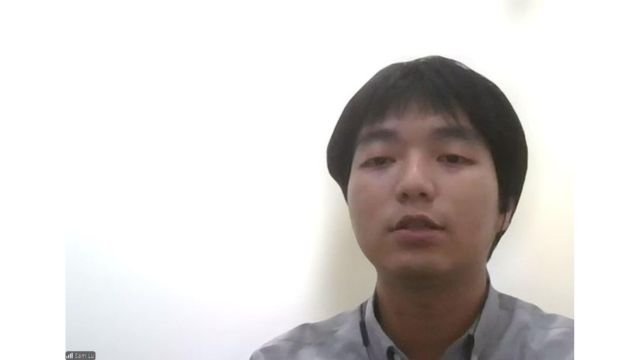
Intervening in the discussion, Fautré commented that he had asked Chat GPT to write an article on the Tai Ji Men case. It was accurate enough, except that it concluded that Tai Ji Men “claim” they were innocent, without mentioning that they have been found not guilty of any crime, including tax evasion, by Taiwan’s Supreme Court.
Cindy Wang, who works as an information technology consultant, reflected on the meaning of the UN day of observance and the notion of “gross human right violations.” She mentioned as examples the Nazi Holocaust, the Chinese repression of Tiananmen Square protests in 1989, the kidnapping and killing of “disappeared” critics of the military regimes in 20th century Argentina, the crackdown on freedom of the press and assassinations of dissident journalists in contemporary Russia. Even if no blood was shed, Cindy said, the Tai Ji Men case was one of persecution, based on fabrications and generating immense and unnecessary suffering. Only solving the case would show that “gross human rights violations” are a thing of the past for Taiwan.

Sarah Wang, a specialist in the business department of a shipping company, reported her experience with crew members who were on board vessels during the COVID-19 pandemic. Because of the restrictions, some 300,000 of them were not able to land on their ports of destination and had to remain on board the ships or be quarantined far away from home. For Sarah, this was an interesting experience. Due to her job, she was keenly aware of the suffering of sailors. However, very few in the general public knew of the problem. She sees a similarity with the Tai Ji Men case. For those who, like her, have found in Tai Ji Men what she called a “warm home,” the suffering is very real. Yet, not enough people realize how dramatic the Tai Ji Men case is. If they knew, perhaps the solution of the case would be closer, she concluded.
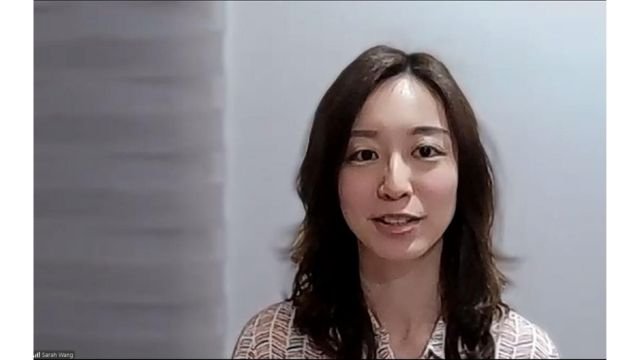
Marco Respinti, an Italian scholar and journalist who serves as director-in-charge of Bitter Winter, offered the conclusions of the webinar. He commemorated the Russian writer Alexander Solzhenitsyn, who spent eight years in Soviet concentration camps and was then sentenced to exile as a dissident. One of Solzhenitsyn’s writings, Respinti said, was written in 1974 and is called “Live Not by Lies.” The Russian writer argued that both those who repeat governmental lies and those who do not find the courage to stand against them become accomplices of the lies. This is also true for the Tai Ji Men case, Respinti concluded. Only when enough Taiwanese citizens will not only stop repeating the lies but firmly stand against them will the case be solved.
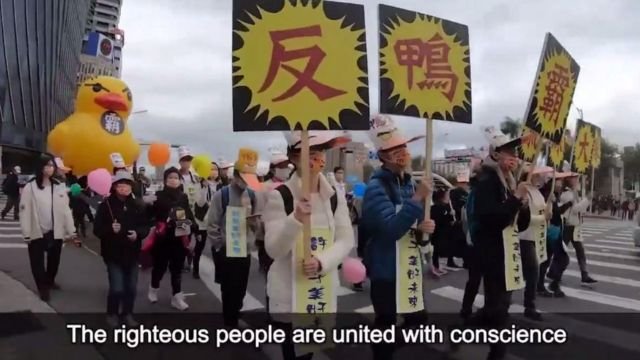
As usual in the Tai Ji Men case webinars, the final conclusion came through a video presenting the truth on the case at the rhythm of rock and roll music.

Alessandro Amicarelli is a member and director of Obaseki Solicitors Law Firm in London. He is a solicitor of the Senior Courts of England and Wales, and a barrister of Italy, specializing in International and Human Rights Law and Immigration and Refugee Law. He has lectured extensively on human rights, and taught courses inter alia at Carlo Bo University in Urbino, Italy, and Soochow University in Taipei, Taiwan (ROC). He is the current chairman and spokesperson of the European Federation for Freedom of Belief (FOB).


